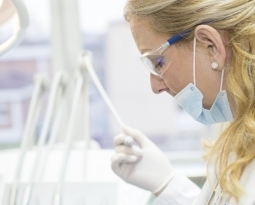Maridose LLC is in the Final Stages of Federal License to Grow Cannabis for Medical Research
Florida-based Maridose, LLC is in the final stages of obtaining a coveted and rare federal license to grow cannabis for medical research in Maine.
Professor Lumír Hanuš leads the scientific advisory board for the company, bringing on expertise in cannabis research. His discovery and isolation of Anandamide – the first known endocannabinoid in the human brain – made him renowned as the leading analytical chemist in cannabis research. In fact, this discovery is credited with being the basis for all research into the endocannabinoid system for the last 3 decades.
The limitations on these licenses have left the University of Mississippi with a monopoly over the cultivation of cannabis for federally sanctioned research for more than 50 years. There are only 600 scientists across the country with federal approval to study marijuana.
With the approaching license approval, Maridose intends to set up shop in TechPlace, the business incubator facility at Brunswick Landing. A final walkthrough has already been conducted on April 21st so close to April 20th, or 4/20). All that is left is to receive the final greenlight from the federal office, and then Maridose can begin custom-cultivating cannabis for research.
The custom cultivating practice will ensure the exact amount needed will be grown for each research study, rather than growing the product and then trying to sell it to researchers. In addition to cultivation, Maridose intends to conduct their own research in areas including opioid use replacement, pain management, arthritic and neuropathic pain, sleep, and anxiety.
This application process was initiated by Maridose more than four years ago, sitting alongside 36 other applications. To date, six entities have joined the University of Mississippi on the DEA’s list of approved “bulk manufacturer (marijuana) growers” and Maridose is poised to be next.
Are you developing new technology for an existing application? Did you know your development work could be eligible for the R&D Tax Credit and you can receive up to 14% back on your expenses? Even if your development isn’t successful your work may still qualify for R&D credits (i.e. you don’t need to have a patent to qualify). To find out more, please contact a Swanson Reed R&D Specialist today or check out our free online eligibility test.
Who We Are:
Swanson Reed is one of the U.S.’ largest Specialist R&D tax advisory firms. We manage all facets of the R&D tax credit program, from claim preparation and audit compliance to claim disputes.
Swanson Reed regularly hosts free webinars and provides free IRS CE and CPE credits for CPAs. For more information please visit us at www.swansonreed.com/webinars or contact your usual Swanson Reed representative.

















